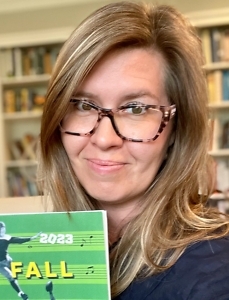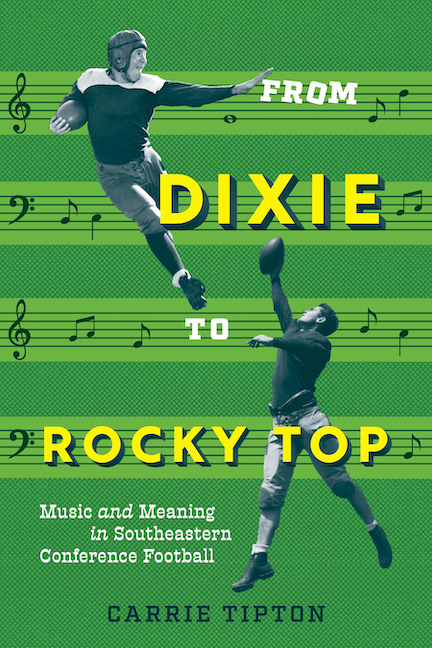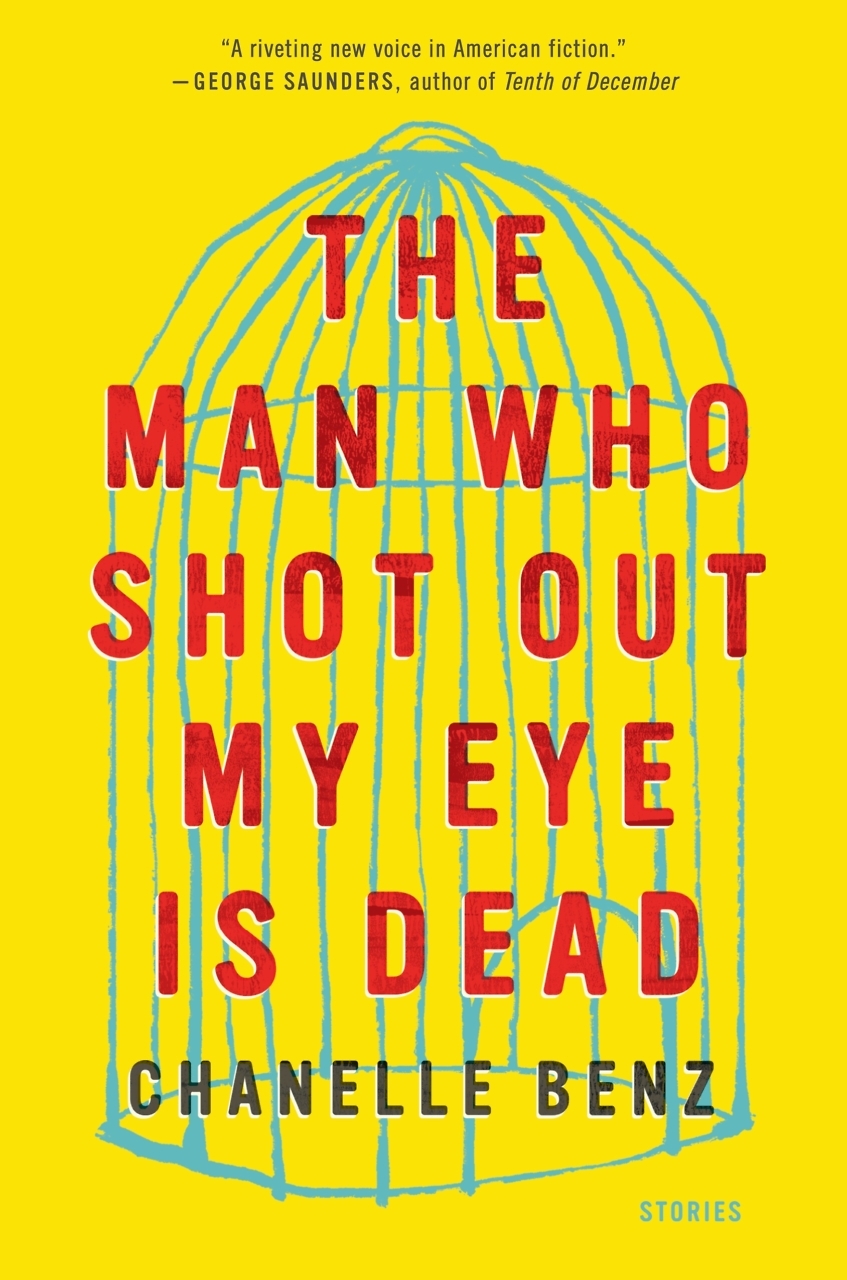Overdoing a Good Thing
In Overdoing Democracy, Robert B. Talisse makes the case for stepping back from the maelstrom of politics
In prose both sophisticated and accessible to the lay reader, Robert B. Talisse’s Overdoing Democracy sets forth the case for a national reckoning on how our addiction to politics is undermining the purposes for which democracy was conceived.
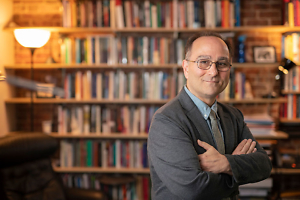 Talisse, who serves as W. Alton Jones Professor and chairs the philosophy department at Vanderbilt University, specializes in pragmatism. The term bears a broader, more complex definition when referring to the philosophical tradition descending from Charles Peirce and William James to the likes of Robert Brandom, Richard Rorty, and Talisse himself; nevertheless, if we take being ‘pragmatic’ to mean dealing with things realistically with the goal of a workable method or solution, the term is doubly appropriate to Overdoing Democracy.
Talisse, who serves as W. Alton Jones Professor and chairs the philosophy department at Vanderbilt University, specializes in pragmatism. The term bears a broader, more complex definition when referring to the philosophical tradition descending from Charles Peirce and William James to the likes of Robert Brandom, Richard Rorty, and Talisse himself; nevertheless, if we take being ‘pragmatic’ to mean dealing with things realistically with the goal of a workable method or solution, the term is doubly appropriate to Overdoing Democracy.
Talisse introduces the text with an anecdote all too familiar in the Trump era: a conversation with a friend worried that her large family Thanksgiving dinner might “erupt into a bitter clash between politically opposed relatives.” This dilemma is so common, it seems, that a Google search for “Survive Thanksgiving politics” yields more than 40 million hits. And yet, in skimming a small but broad sample of these articles, Talisse observes that “no columnist I have read recommends adopting the stance that Thanksgiving dinner is more important than politics.”
Democracy, Talisse argues, exists to create conditions in which we are free to do and think about other things. And yet in 21st-century America, one is hard-pressed to name a social space in which politics is neither discussed nor implicitly present in the way we divide and organize our lives— a phenomenon Talisse calls “the political saturation of social space.” Overdoing Democracy offers a lucid account of how we got to a point where politics can’t seem to be avoided and what we might do to resituate democracy such that it serves rather than subverts its intended purposes.
Talisse recently answered questions for Chapter 16 by email:
Chapter 16: At first glance, the book’s subtitle (Why We Must Put Politics in Its Place) suggests politics must be “scolded” or deflated, but you suggest early on in the book that you mean something more literal, i.e., that politics must be resituated in our cultural discourse. Could you summarize for readers curious about your book’s thesis what that place might be and how you think that might be done?
Robert Talisse: This is a great place to begin. I am sensitive to the ways in which the title and subtitle of the book can be heard. And let me acknowledge that it’s an odd time in the history of our country to be proposing that what we need is less democracy! I also realize that democracy is an absolutely crucial social good — despite our typical frustrations with democracy, we all know that in democracy’s absence politics goes very badly. My career as a political philosopher has largely been given to defending a participatory and deliberative conception of democratic politics. So now I’ve written a book about the need to put politics in its place. What gives?
Democracy is such an important social good that it’s natural to think that more of it is always better. This idea commonly prompts the further thought that our responsibilities as democratic citizens are so important that everything we do together should invoke our civic role as fellows in collective self-government.
However, in almost every other context, we recognize the possibility of overdoing a good thing. We can overdo our exercise regimen; we can overdo our occupation; we can even smother the people we love with overbearing affection. The central thesis of the book is that when we permit politics to penetrate the entirety of our social interaction — such that everything we do together is in some way a manifestation of our political loyalties — we lose some of the moral capacities we need in order to perform well as democratic citizens. As paradoxical as it might sound at first, if we want to contribute to the health of our democracy, we sometimes need to do things together that are in no way expressive of our political allegiances. These are activities in which we cooperative with others but have no sense of what their politics might be like.
Sometimes in order to achieve a goal, we need to aim at something else. My claim is that the flourishing of democracy is a goal of this kind. If we want to contribute to democracy’s flourishing, we need sometimes to engage together in cooperative endeavors that are not political. That’s the more conceptual, or philosophical, thread of the argument. It is buttressed by a range of empirical findings concerning what I call the political saturation of social space. Today, nearly everything we do — from buying groceries to taking vacations — is segregated along partisan lines. We know the familiar tropes: Target or Walmart? NASCAR or fútbol? Yoga pants or camo tee? Hybrid or pickup? As it turns out, much of what we do in our day-to-day lives is a strong signal of our partisan allegiances. For example, research shows that liberals and conservatives watch different movies, live in different kinds of homes, work at different kinds of jobs, have different aesthetic tastes, do different things on vacation, and so on. The overall trend is intriguing: As our country has become more diverse in the aggregate, our local environments have become more and more politically homogeneous.
None of this may be all that surprising, but consider the upshot: Our everyday casual social interactions are increasingly likely to put us in contact only with people who are politically just like ourselves. When we consider this in light of an uncommonly widespread cognitive phenomenon known as belief polarization, the trouble for democracy becomes clear. To be brief, when we interact only with people who are likeminded, we transform into a more extreme version of ourselves — we come to hold more extreme versions of our beliefs, and we come to hold those new versions with greater confidence. What’s more, as we transform in this way, we also come to adopt increasingly negative attitudes and estimations of those who we perceive to be unlike ourselves. Once we belief-polarize, we come to regard those who do not share our views as irrational, incompetent, and untrustworthy.
Democracy is many things. But at its heart lies the moral proposal that a relatively just and stable social order is possible in the absence of kings and rulers; the people can govern themselves as a community of political equals. This means that democratic citizens must sustain the capacities to regard their political rivals as nonetheless their political equals. When that capacity is lost, democracy becomes civil war by other means. It is clear that belief polarization erodes that capacity.
Now we can tie the threads together. In overdoing democracy, we permit our political allegiances and divisions to color everything we do; this amplifies our vulnerability to belief polarization, which in turn dissolves our democratic capacities. Democratic politics will of course remain a site of antagonism and conflict, so I argue that the remedy for democracy’s trouble must lie outside of politics. In my view, democratic politics still has a central place in the lives of a free people, but it can function well only when its citizens preserve spaces in their social environments for engagements of other kinds.
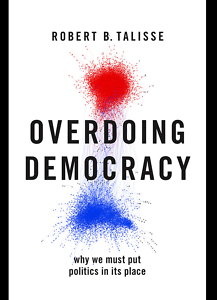 Chapter 16: Reading through the text, I felt myself wanting to ask if the problem isn’t democracy or politics, per se, but rather the bleeding of the tools of modern capitalism — branding and marketing, especially through new media like Facebook and Twitter — into how we conceptualize politics. In other words, what we’re dealing with isn’t tribalism so much as carefully cultivated brand loyalty and media saturation. What do you think about framing the problem in those terms?
Chapter 16: Reading through the text, I felt myself wanting to ask if the problem isn’t democracy or politics, per se, but rather the bleeding of the tools of modern capitalism — branding and marketing, especially through new media like Facebook and Twitter — into how we conceptualize politics. In other words, what we’re dealing with isn’t tribalism so much as carefully cultivated brand loyalty and media saturation. What do you think about framing the problem in those terms?
Talisse: It is clear that part of the explanation for democracy’s condition is the application of marketing technologies to politics, and as others have emphasized, social media and 24/7 cable news have played large roles as well. However, the causal explanation of large-scale social phenomena is almost never unidirectional. The merging of politics with our broader social identities no doubt is the result of complex forces, and there’s reason to believe that the infiltration of what you call the tools of modern capitalism into politics is a result rather than a cause. In the book, I venture the following highly general (and admittedly partial) explanation: Thanks to technologies of various kinds, we now live in a made-to-order world, and so we have come to expect that all facets of our experience should be under our control. However, I’m keen to resist the idea that democracy’s problems are due to some alien force invading democracy and distorting it. As I argue in Chapter Two, the expansion of democracy, and thus our partisan allegiances, into all aspects of social life is the result of our earnest and sincere attempts to achieve the democratic ideal of self-government among equals. So, although I’m happy to accept a wide range of causal explanations (economic, technological, ideological, etc.) for the phenomena I’m diagnosing, I reject the thought that any of these is primary, and I also will insist that the tendency to overdo democracy is baked into the democratic ideal itself. Importantly, I would argue that in recognizing that there are vulnerabilities inherent in democracy I am in no way hedging on democracy’s value. Quite the opposite: In order to defend and uphold democracy, one must acknowledge its weaknesses. And the tendency to being overdone is among one of democracy’s inherent susceptibilities.
Chapter 16: I think many if not most people would like to take an extended break from politics, particularly around the holidays. But how do you tell people who feel that their fundamental rights and even their basic humanity are under attack to “put politics in its place?”
Talisse: Recall the ambiguity latent in the idea of putting politics in its place. My thesis isn’t that democracy is failing because people are taking politics too seriously. My recommendation isn’t that we need to withdraw and learn to love our political enemies. Nor is the prescription to resign to the political status quo. Rather, the thesis of the book is consistent with a conception of democracy that calls citizens to robust forms of democratic engagement and participation. These forms of engagement will include the full range of protest and resistance activities. The directive to “put politics in its place” has to do with the need to do things other than and in addition to politics. And notice that this is not recommending that one invite one’s political rivals over for dinner. It is not a requirement of citizenship that one expose oneself to the abuse of those who are ideologically committed to denying one’s equality or dignity. The proposal rather is that we — sometimes and occasionally — need to do things together in which politics is not merely suppressed or bracketed, but simply irrelevant to the activity.
I realize that people have a hard time envisioning what an activity of that kind might be. But that’s a symptom of the problem, not an objection to the proposal. In any case, the empirical results suggest clearly that in overdoing democracy — in refusing to engage in recharging activities in which politics has no place — we contribute to a political condition that renders the most vulnerable among us even more vulnerable. To put that in a slightly different way: When we overdo democracy, we help to accelerate the devolution of democracy into civil war by other means. And when politics becomes that kind of war, the socially vulnerable are rendered all the more at risk.
If we wish to advance our political aspirations for a more just, inclusive, and egalitarian democracy, we need to keep our democratic capacities intact. Any gains with respect to justice that one might make by way of realpolitik are ultimately fragile.
Chapter 16: What do you make of the way in which politics has bled into cultural settings such as professional sports and entertainment, where athletes and celebrities have taken positions that politicize outlets many people have traditionally relied on for temporary escape?
Talisse: I confess that I found the controversy over “taking a knee” really bizarre. By insisting that a game of professional football begin with an act of citizenship (standing in attention with hand on heart, for the national anthem), the context was already overtly political. In my broader view of democracy (developed in my previous work), when an occasion is marked for enacting a duty of citizenship, there must also be permitted acts of citizenship that manifest criticism or express opposition to those acts. Those who oppose “taking a knee” should also oppose the playing of the anthem. And, for the record, I oppose the idea that it would be a requirement of anyone’s job to perform what is otherwise a voluntary act of citizenship.
But I take it you’re asking about the broader trend where celebrities and others who are famous for reasons having nothing to do with political acumen are nonetheless called upon to pronounce on politics. I again see this as a product of the political saturation of social space, and I would argue that part of the explanation of this has to be demand-side: Celebrities and pop singers use their platforms to pronounce on politics in part because it’s good marketing, and it’s good marketing because citizens want all aspects of their social life to affirm their political commitments. In fact, given the ways in which belief polarization causes us to adopt increasingly negative affect towards rival partisans, we feel the need to know that, say, Taylor Swift votes Democrat. Those who recently discovered her politics are not lying when they report finding her music to be less appealing — that packaging is part of the belief polarization phenomenon!
Chapter 16: To what extent do you think the politicization of daily life — particularly through social media — is performative, i.e., a means to establish identification with a particular clique or group, largely divorced from any purpose other than to self-brand or fit in?
Talisse: It’s almost entirely performative in this sense. Here’s a surprising fact: Leaving aside the leadership of the major parties, rank-and-file Republicans and Democrats in the US are no more divided today over rubber-meets-the-road political policy than they were 25 years ago. In fact, on several “culture war” policy issues, citizens are less divided than they were in the 90s. What has intensified is cross-party animosity. We despise the other side more despite the fact that we have less to fight about. What explains this? Well, I’ve already indicated that this is part of the belief polarization phenomenon. It’s what we should expect of a populace that’s heavily belief-polarized.
And let me add that this circumstance (intense cross-partisan animosity that far outstrips policy divisions) is a boon to major political parties. There’s more to say than I can get into here, but both the Republicans and the Democrats face a similar obstacle to winning national elections: turnout. Whichever party can mobilize turnout best, while also encouraging the other side’s voters to sit out (or spoil), will win at the national office. Animosity, hostility, and distrust of the other side is a potent motivator of political behavior. We can’t look to the major political parties for any relief from these dysfunctions of democracy — they’re the benefactors simply in that the depth of the citizens’ belief polarization makes electoral strategizing easy.
Chapter 16: Other than not discussing politics around the Thanksgiving dinner table, what specific steps would you recommend to the average person to help them “put politics in its place?”
Talisse: I gave a talk on this stuff very early in my work on the book and was asked this very question. Back then, I gave an answer that was mistaken, but instructively so. I said, “Well, why not try volunteering at your local public park to pick up litter?” The questioner replied, “That’s a liberal thing to do.” I was floored. I replied, “Really???,” with a tone of incredulity and exasperation. Then I simply took the next question. But I missed an opportunity to find out what the audience member saw as especially liberal about my suggestion. Maybe he found volunteering a liberal thing to do? Or maybe he thought that prioritizing picking up litter over, say, feeding the homeless a liberal thing? As I say, I missed the opportunity to find out. And that’s when it struck me that I had been too quick to regard the questioner as some kind of irrational alien who somehow liked litter.
I think the most important thing we can do is recognize our own vulnerability to the belief polarization phenomenon. It is especially crucial to recognize that our views about who our political rivals are, what kind of people they are, and how they live are likely the products of belief polarization. This is why finding occasions to interact with others whose politics are simply unknown to us is so important — it forces us to see others as, say, good neighbors, responsible parents, dependable co-workers, and members of caring families independently of our knowledge of how they vote.
So, Overdoing Democracy does not provide a “to do” list for those who want to save democracy. Any list I could provide would very likely be an expression of my own political values and ideals. The practical recommendation to the reader is twofold. First, acknowledge your own vulnerability to belief polarization. Second, try some cooperative activity to engage in with others that you sincerely regard as not directed by your political affiliation. If in doing that activity you find your partisan identity being affirmed, try something else. If in doing that activity you find your partisan identity being attacked, try telling the others that you’re not interested in engaging in politics. If that doesn’t work, try something else.
But the larger point is that part of what makes democracy so precious, and politics so important, is that it promises a social order in which we can devote our lives to other things: relationships with others based in care, attachment, and aspirations that may have nothing at all to do with politics. That democracy serves an objective outside of itself is ultimately what explains how it’s possible to overdo it: In overdoing democracy, we dissolve or crowd out sites where other kinds of value can be cultivated. And, as I argue, democracy’s flourishing in part depends upon citizens who find value in pursuits beyond politics.

Ed Tarkington’s debut novel, Only Love Can Break Your Heart, was published by Algonquin Books in 2016. His second novel, The Fortunate Ones, is forthcoming from Algonquin in 2020. He lives in Nashville.
